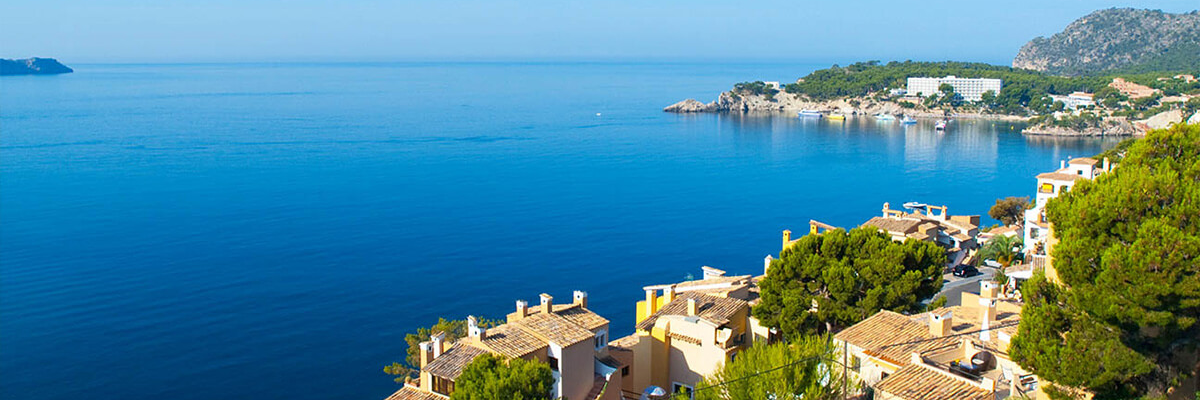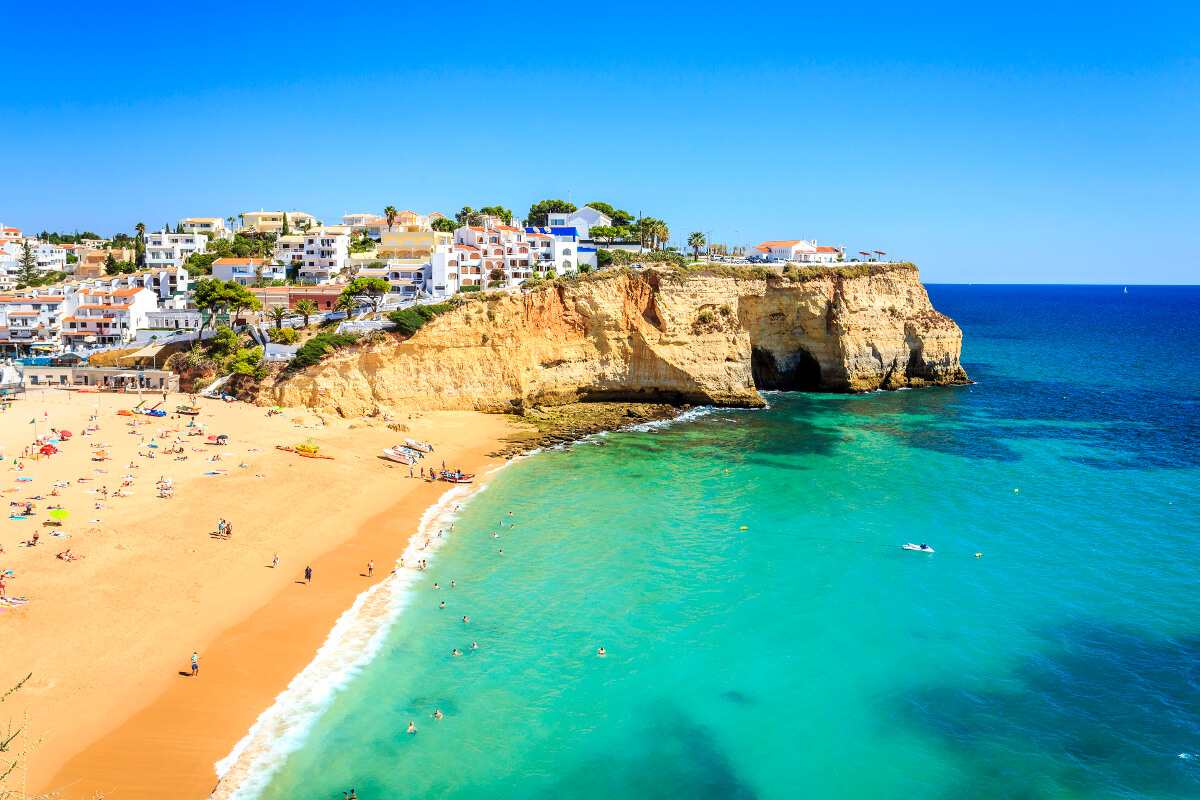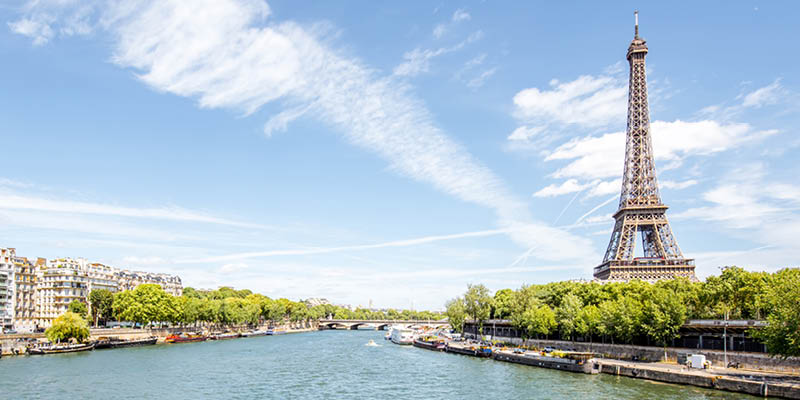Buy euros online
Our currency calculator is a quick and easy way to check our latest foreign currency exchange rates.
Why buy euros from M&S Bank?
Wherever you're travelling to in the eurozone, we offer a number of benefits when you buy euros with M&S Bank.
EUR euro exchange rate
The exchange rate may differ depending on the day you order your currency.
Find today's euro exchange rate here. Or use our euro converter to see how much you could get for your pound.
How to sell back euro
Do you have left over euro from your recent trip? We can buy back foreign currency from you.
How to order euros
Our online and in-store services make ordering your euros simple:
- Order your euros online with our Click & Collect currency service. Choose your collection date and collect from your local Bureau de Change or from your local M&S store.
- You can also order before 4pm and collect in store the same day, using our SameDay Click & Collect service*
- Or visit your local Bureau de Change to buy euros*. You can find our Bureaux de Change in M&S stores nationwide. Many are open seven days a week late into the evening, so you can buy your euros at a time that suits you.
Why visit Europe?
The eurozone is brimming with ancient history, quirky architecture, and a multitude of different cultures for you to explore.
From the remote rural villages of France, sampling the cuisine of Italy or basking in the year-round sunshine of the Algarve, there is plenty to keep you entertained.
Use our guides to Europe to learn more about the different European destinations you can explore, relax in and enjoy.
To get our best rates on euro use our Click & Collect service.
Guides to Europe

France
From beaches to city exploring, check out our top picks for France.

Germany
One of the largest countries in Europe has plenty for you to explore.

Greece and the Greek Islands
With ancient ruins, amazing cuisine and awe-inspiring sunsets, start planning your trip to Greece.

Belgium and the Netherlands
Explore cobbled streets and scenic canals across these European neighbours.

Spain and Portugal
With millions of UK holidaymakers visiting each year, learn about the places that make these destinations European hot spots.

Italy
Wonderful fashion, incredible food and breath-taking architecture. Learn more about Italy.
Euro facts and history
20 of the 27 EU members use the euro (EUR) as their official currency.
The idea of a single European currency was put forward during the 1991 Maastricht Treaty. Following the official formation of the European Union, the euro came into circulation in 2002 and replaced 19 different currencies.
Each euro contains 100 cents and its currency symbol is €.
The euro comes in both coins and banknotes. Coins include:
- 1, 2 ,5, 10, 20, and 50 cents
- EUR1
- EUR2
Banknotes include:
- EUR5
- EUR10
- EUR20
- EUR50
- EUR100
- EUR200
- EUR500
You can buy euro online using our Click & Collect or Same Day Click & Collect service.
Which countries accept euros?
If you want to learn more about the history of the euro and where you can spend the currency read our useful guide.
Learn more about countries that accept euros
Frequently asked questions
Can I use my bank card in Europe?
You'll be able to use your credit and debit card all over Europe, though your bank will usually charge a transaction fee for using your card abroad. Some businesses also will let you pay in British pounds (GBP), but it's always best to pay in the local currency. By paying in GBP, you may get unfavourable exchange rates that cost you extra.
However, it's a good idea to also take travel money with you. Souvenir shops and local markets will typically be more cash-based, and you'll need some euros on hand to buy that Eiffel tower keyring or fridge magnet.
You can buy euro online using our Click & Collect service.
What are the typical costs in Europe?
Europe can be a fantastic holiday destination, whether you're on a shoestring budget or looking for a luxurious getaway.
Food and accommodation costs will vary from country to country. For a basic meal, you can expect to pay:
- EUR18 in Luxembourg
- EUR15 in France and Ireland
- EUR14 in Austria
- EUR12 in Germany
- EUR10 in Slovenia and Lithuania
- EUR9 in Croatia
- EUR7 in Slovakia
Generally speaking, countries in Western Europe (Luxembourg, France, etc) will be more expensive than the rest of Europe (Slovenia, Croatia, etc). If you're travelling to a Western European country, you may need to think about budgeting or taking a little more travel money.
Can you use other currencies in Europe?
Some EU members have their own official currency instead of the euro. If you're travelling to one of these countries outside of the eurozone, you'll need different travel money.
While you can use the euro across different European countries, you'll only be able to use non-eurozone currencies in the respective country.
Do you need a visa to visit Europe?
You won't need a visa to visit the EU, but how long you can stay will depend on whether your country is part of the Schengen Area.
Ireland, Bulgaria, Croatia, and Romania aren't part of the Schengen Area. This means you can stay in each country for up to 90 days without a visa. If you want to work or stay longer, you'll need to apply for the appropriate visa.
The rest of the EU are Schengen Area members. You can stay in the Schengen Area for up to 90 days within a 180-day period without a visa.
If you're planning to visit Europe in the next few years, you'll need ETIAS (European Travel Information and Authorisation System) to travel. While ETIAS isn't a visa, it will be mandatory for EU entry from 2024 onwards.
You should always research the most up to date visa guidelines before planning a trip.
Should I tip in Europe?
Tipping in the EU is a common practice, so make sure you have some spare euros on hand!
Tipping isn't mandatory, but giving a couple of euros to taxi drivers, hotel porters, and hotel cleaning staff is a nice way to show your appreciation.
Most restaurants will add a service charge to your bill, so you won't need to worry about tipping here. If your service was particularly excellent, leaving a 5% to 10% tip is more than enough.
What languages are spoken in Europe?
The EU is a large and diverse place, so it's no surprise that there are 24 official languages.
Some of the main languages include:
- English
- French
- German
- Italian
- Spanish
- Dutch
- Greek
Each country in the EU will have an official language, and some may have regional or minority languages too. Whether you're visiting Spain, Sweden, or Slovakia, learning a few key phrases can help you get by more comfortably.
What is the latest government travel advice for Europe?
The government regularly provides information for individual countries, both inside and outside the EU. You can visit the Foreign, Commonwealth & Development Office (FCDO) for travel advice on a particular country.
The government also has general information on visas when travelling to the EU and Schengen Area.
Travel insurance is a must-have when visiting the EU. Most EU citizens pay for their healthcare, and a simple patch up can cost a lot of euros if you're not covered.
What is the best time of year to visit Europe?
The best time to visit Europe depends on where you want to go and what you want to do.
If you're heading to Europe for a skiing holiday, you'll want to visit between November and April. Some of the world's best ski resorts are located in the Alps region of Europe, so be sure to visit Austria, Germany, or France during winter to hit the slopes.
If you're a sun-seeker, head to Southern Europe between May and August. Countries like Spain, Italy, Croatia, and Greece are renown for luxurious villas, family-friendly resorts, and cheap city breaks.
If you want to explore rugged coastlines but don't fancy wearing your winter gear or lathering on sun cream, milder EU countries like Ireland could be your dream destination!
Important documents
M&S Travel Money Terms and Conditions (opens in a new window)
You may require Adobe PDF reader to view PDF documents. Download Adobe Reader(opens in a new window)
Other popular currencies
If you are planning a future holiday or a trip that takes in multiple destinations, these other currencies may be useful:
Swiss francs
Norweigian krone
Swedish krone
Hungarian forint
*Subject to availability
† Subject to store opening hours

